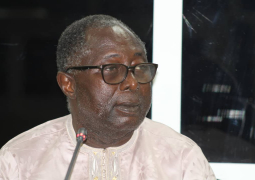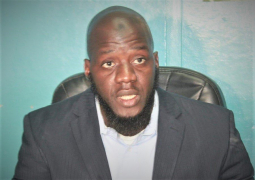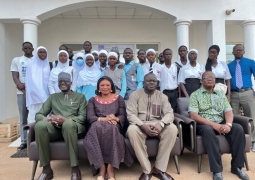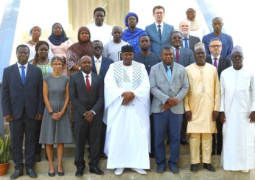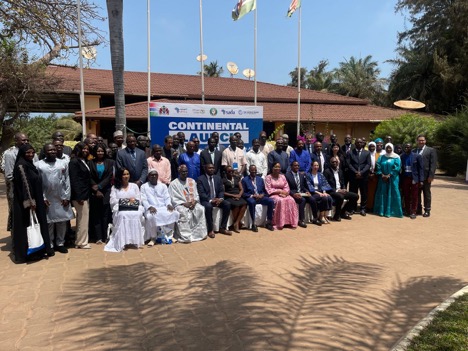
The DTfA/WARDIP SOP-1 is a groundbreaking regional initiative funded by the International Development Association (IDA), with active participation from esteemed organisations such as the African Union, Smart Africa, ECOWAS, and four key countries, including The Gambia, Guinea Conakry, Guinea-Bissau, and Mauritania.
The above mentioned countries are beneficiaries to the digital programme.
Smart Africa's pivotal role in this project revolves around empowering policymakers and stakeholders across government agencies to shape policies aimed at expediting the realisation of a unified digital market in Africa.
In his launching statement, Ousman A. Bah, the minister of Communications and Digital Economy, said the initiative is designed to address critical challenges and unlock unprecedented opportunities in beneficiary countries’ digital landscape.
He said the regional project provides an opportunity for the most needed support in the digitalisation journey to beneficiary countries; provision of the second submarine cable development of research; education network; operationalisation of ICT agency; development of e-government programmes and project implementation of cyber security activities; entrepreneurship and innovation among others.
He said the digital programme has three components, noting component one is “the connectivity market development and the integration represent a bold step towards breaking down barriers to cross border telecommunication services by deploying broadband connectivity, infrastructure, laying the groundwork for a more accessible and equitable digital future.”
“Component two, data market development and integration underscore the design of enabling the simlex exchange storage and processing of data across borders, through the component it is a hope to facilitate regional deployment and access to data driven services, innovation and infrastructure.”
“Component three, the online market development and integration represent a pivotal opportunity to enhance the digital eco-system for a cross border commerce by supporting the integration and development of the online market, we are creating an enabling environment for the delivery and access of digital goods and services.”
Rose Pola Pricemou, the minister of Posts, Telecommunications and the Digital Economy of the Republic of Guinea, said the WARDIP programme aimed to increase access and use of broadband and related services in the programme's beneficiary countries, thus creating tremendous prospects for connectivity within member states.
This programme, she added, meant to promote the integration of a single digital market in West Africa.
“From the beginning, the Republic of Guinea has shown keen interest through its political and executive authorities at the highest level to be among the first beneficiaries and has made a commitment to the rapid, efficient and successful implementation of the programme,” she noted.
Lacina Kone, Chief Executive Officer (CEO) Smart Africa, described the event as a significant milestone in boosting digital innovation and integration in the region.
He said digital integration is essential in economic transformation within the region.
“The digital integration cannot be attained in isolation. There is a need for collaboration at regional and continental level,” he said.
Moses Bayingana, senior ICT policy advisor for AU Commission, said the launching of the digital programme is timely for the region, noting it is associated with a series of opportunities.
He said the African Union Commission will support beneficiary countries in the smooth implementation of the digital programme to enhance digital development in the region.
Rocio Sanchez Vigueras, senior digital development specialist for World Bank said: “Digital is no more for luxury but a necessity for everyday lives. Seventy percent of the region is not using the internet and even when people have the internet, they cannot use it because it’s expensive.”


